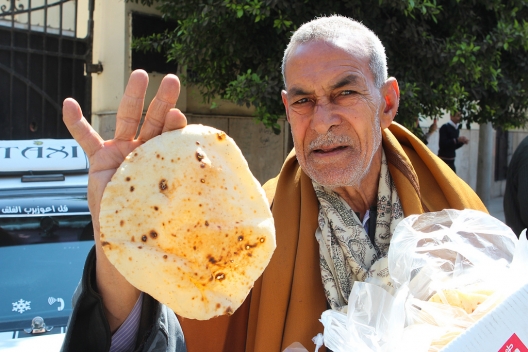 In order for the forces defending freedoms, human rights, and the democratic transition to move beyond the weak position they now find themselves in, they must develop a realistic social and economic plan. Similarly, it is essential for them to take a grounded approach to citizens’ priorities, demands, and concerns—as a result, building citizens’ confidence in the abilities of these “democrats,” so that they will be taken seriously.
In order for the forces defending freedoms, human rights, and the democratic transition to move beyond the weak position they now find themselves in, they must develop a realistic social and economic plan. Similarly, it is essential for them to take a grounded approach to citizens’ priorities, demands, and concerns—as a result, building citizens’ confidence in the abilities of these “democrats,” so that they will be taken seriously.
Looking objectively at the events of the past three years, it is clear that the democratic forces’ platform of rights, freedoms, transitional justice, and accountability for perpetrators of corruption and violations was not enough to draw popular rallies behind them.
The democrats’ single-minded focus on the constitution and other political issues, and their lack of attention to social and economic conditions, have led to people abandoning the dream of a democratic transition. Instead, vast sectors of society have either fallen back on the discourse of ‘stability’ (which was employed by the Supreme Council of the Armed Forces, then the Muslim Brotherhood, and now the current government, in excess), withdrawn from public affairs altogether, or gone looking for a hero and savior.
Democratic forces’ restraint has enabled their presence in public space: in protests defending rights and freedoms, and in choosing to participate in or boycotting the electoral process. Meanwhile, they have not played a role in development, and their activities targeting Egypt’s deteriorating social and economic conditions have been severely limited. There has been constant pressure from the powers that be, who have tried to push the ‘democrats’ out of the public sphere. These powers have succeeded in rallying public support towards these ends, creating negative impressions that “the rich aren’t interested in the day to day life of the people,” or that “those saboteurs don’t want safety for the people or stability for the country,” or that “those protesters don’t have anything positive to contribute.” These and other impressions are now repeated daily by the pro-regime media, as well as by writers and politicians who have allied themselves with the regime.
Over the past three years, democratic forces have failed to form stable coalitions based on a platform of rights and freedoms. They have failed to form coalitions that can stand up to other alliances: those that defend their own power, that defend the authoritarianism of the state or society. They have failed to stand up to those that defend a reactionary vision in which ‘democrats’ have all but disappeared from an environment engaged with citizens’ priorities, demands, and concerns, one in which politics is not an abstract subject found only in the constitution or other major issues, but integrated within people’s daily lives.
It seems the conditions necessary for the ‘democrats’ to be viable competition in the presidential and parliamentary elections are lacking. Given how intertwined power, money, and the influence of the mainstream are all, which have produced negative impressions of rights and freedoms, the ‘democrats’ have been unable to break into politics or the media. Thus, the democratic forces must seriously consider working a plan for the medium and long term. They must create a realistic social, legal, and economic platform, and put it to the test in local contexts, with the goal of building trust among citizens and providing real solutions to the deteriorating conditions in the country. After a few years, they can try to enter politics and the media again, returning as strong competition in the presidential and parliamentary elections.
Tomorrow there will be a new margin for democracy in Egypt.
Amr Hamzawy joined the Department of Public Policy and Administration at the American University in Cairo in 2011, where he continues to serve today. He is a former member of parliament, former member of the National Salvation Front, and founder of the Freedom Egypt Party.
Image: Photo: Bora S. Kamel
